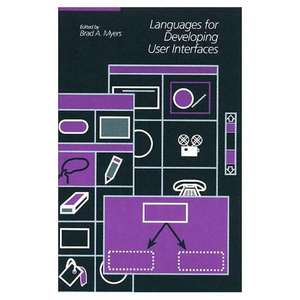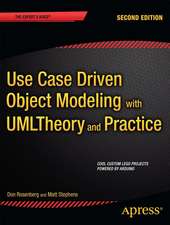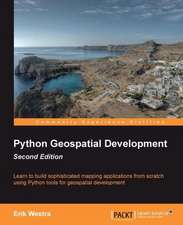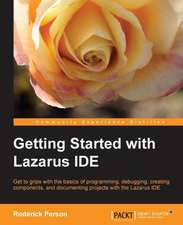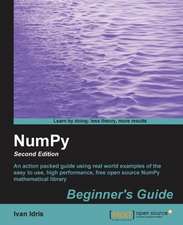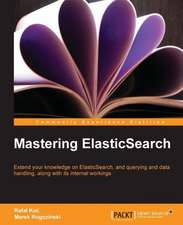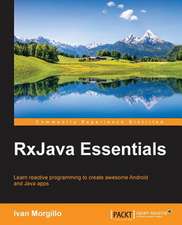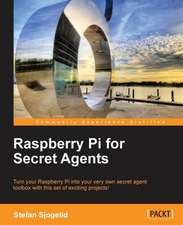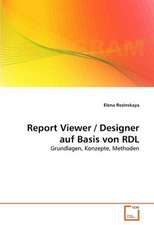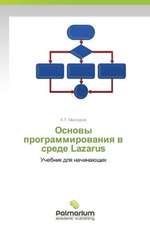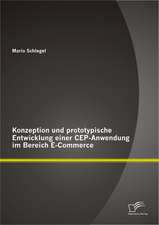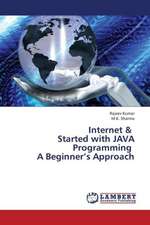Languages for Developing User Interfaces
Editat de Brad A. Myersen Limba Engleză Hardback – 11 feb 1992
| Toate formatele și edițiile | Preț | Express |
|---|---|---|
| Paperback (1) | 454.91 lei 6-8 săpt. | |
| CRC Press – 6 dec 2019 | 454.91 lei 6-8 săpt. | |
| Hardback (1) | 734.82 lei 6-8 săpt. | |
| CRC Press – 11 feb 1992 | 734.82 lei 6-8 săpt. |
Preț: 734.82 lei
Preț vechi: 1105.06 lei
-34% Nou
Puncte Express: 1102
Preț estimativ în valută:
140.60€ • 146.82$ • 116.11£
140.60€ • 146.82$ • 116.11£
Carte tipărită la comandă
Livrare economică 15-29 aprilie
Preluare comenzi: 021 569.72.76
Specificații
ISBN-13: 9780867204506
ISBN-10: 0867204508
Pagini: 476
Dimensiuni: 156 x 234 mm
Greutate: 0.86 kg
Ediția:1
Editura: CRC Press
Colecția A K Peters/CRC Press
ISBN-10: 0867204508
Pagini: 476
Dimensiuni: 156 x 234 mm
Greutate: 0.86 kg
Ediția:1
Editura: CRC Press
Colecția A K Peters/CRC Press
Public țintă
Professional Practice & DevelopmentCuprins
Introduction Part I: Programming Languages for End Users 1. The User Interface is the Language 2. A Component Architecture for Personal Computer Software 3. Design Support Environments for End Users 4. The Use-Mention Perspective on Programming for the Interface 5. Why the User Interface is Not the Programming Language-and How It Can Be Part II: Programming Languages for Programmers 6. How Programming Languages Might Better Support User Interface Tools 7. Requirements for User Interface Programming Languages 8. Languages for the Construction of Multi-User Multi-Media Synchronous (MUMMS) Applications 9. Ideas from Garnet for Future User Interface Programming Languages 10. Constraint Imperative Programming Languages for Building Interactive Systems 11. An Active-Value-Spreadsheet Model for Interactive Languages 12. Properties of User Interface Systems and the Siri Programming Language 13. A Foundation for User Interface Construction 14. User Interface Programming with Cooperative Processes 15. Constructing User Interfaces with Functions and Temporal Constraints 16. Different Languages for Different Development Activities: Behavioral Representation Techniques for User Interface Design 17. Hints on the Design of User Interface Language Features—Lessons from the Design of Thring Part III: Workshop Reports 18. Report of the "End-User Programming" Working Group 19. Report of the "User/Programmer Distinction" Working Group 20. Report of the "Linguistic Support" Working Group 21. Future Research Issues in Languages for Developing User Interfaces
Descriere
This book focuses on the new approaches that may allow the next generation of computer programming languages to better support the creation of user interface software. It is of interest to creators of toolkits and people creating end-user applications that want to provide end-user customization.
